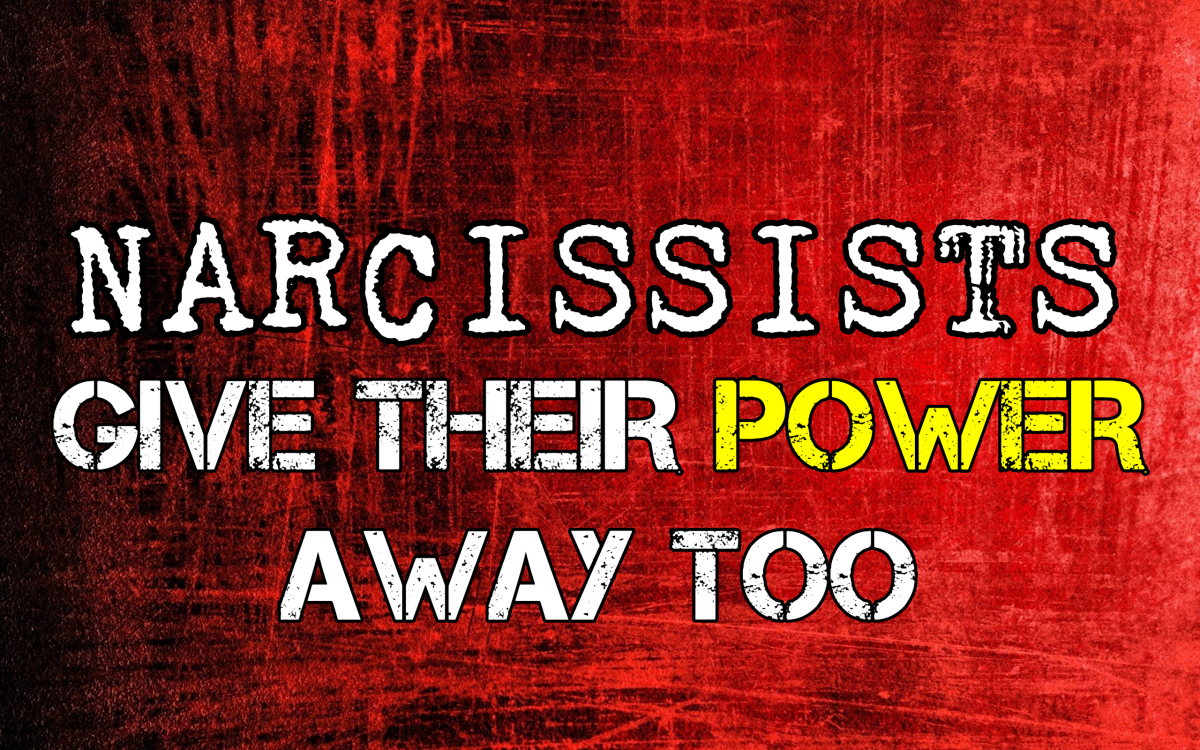Sentence Sermons (Christian Inspiration) #75 --- Meddling (Mind Your Own Business)
Quotations on Meddling
[There are] people whose lives are soured with a mistaken sense of duty.
There are a lot of them all around us.
They think it their duty to look after the soul's welfare of everybody but themselves.
They think it their duty to run every institution to which they belong, according to their own ideas.
They think it their duty to enlighten everybody else on earth with their culture.
They think it their duty to make themselves a general nuisance, and they fulfill their "duty."
The world would be a lot brighter and better place to live if these people would engage in the pursuit of happiness.
It may not be the chief end and aim of life, but it is a pretty good subordinate aim anyhow. And, somehow or other, those who are in the race for it usually succeed in shedding a good deal of happiness round them for other people to profit by.
—Burris A. Jenkins, Kansas City Post, Kansas City, Mo., Dec. 17, 1919.
To many it is an exceedingly hard task, but how fine it is to keep your nose out of other people's business. An individual who is prone to meddle into the affairs of others is of little use to himself or anyone. He is a nuisance and brings no good to his people, community, or acquaintances. Many a worthy community project has been lost because of his interpositions, while progress is constantly retarded with his long nose, and friends and relatives forced into bickering just because he won't keep his mouth shut. If you are the meddler, constantly delving into the activities of others, try for a few days minding your own business and learn how pleasing and profitable it might be.
—Howard D. Strother, The New Era, Eunice, La., Aug. 7, 1936.
To live at peace in ... life we must cultivate sympathy whenever we find that we can give or receive from others and endorse their actions, and we must cultivate indifference whenever we have a feeling of antagonism arising in us.
Each one of us must learn to maintain himself in his own place and work and leave others free and unhampered to do likewise in their department, and that cannot be done without cultivating indifference. It may not sound well, it is nevertheless a fact that taking too much interest in the conduct of others, even with our own families, leads us to attempt to control their lives in a way objectionable to them. This is one of the most fruitful causes of dissension.
It may seem queer, but it is true just the same that by LEARNING TO MIND OUR OWN BUSINESS, by cultivating indifference to the actions of others that we cannot approve of and by cultivating sympathy when they are pleasing us, we lay the very best foundation for an agreeable social life.
It is impossible for two persons of equal will power to assert themselves daily in opposition to each other without creating ill feeling that will destroy their happiness and make it impossible for them to cooperate with one another. Antagonism can be avoided only by the cultivation of indifference and each one "minding his OWN business," and not meddle with that of another person.
The business of each one of us is to be peaceful with and toward others, hence we cannot afford to wrangle and quarrel with them; we should not expect anyone to work for us, provide us with anything that we need to maintain life or contribute to our well being and happiness in any way unless we are willing to reciprocate and fully compensate for the favors received by the useful work or service that we can perform.
—Carl Henry Gleeser, The Llano Colonist, New Llano, La., June 1, 1929.
The one crime that causes more trouble than any other is the crime of meddling with other people's affairs. The unpardonable sin against man is interference with his personality.
I will back the meddler in the trouble-producing field against all comers. The thief, robber and liar are children beside him--or her.
The disposition to regulate, dictate and control others is a consuming fire. It has broken up more homes than drunkenness. It is responsible for the darkest, most hideous pages in church history--for the medieval heretic-roaster was simply the fine flower of the meddling spirit. It has embittered the lives of children. It has driven wives away from home and husbands to drink and many to suicide.
No other spirit, in or out of hell, has done more to darken the lives of men of genius, break their hearts and discourage their efforts. There are privacies to which you and God alone are entitled.
Meddling is the poison of government. The best government is that which interferes least with the free action of its subjects.
—Carlysle H. Holcomb, Dallas Morning News, Dallas, Texas, May 22, 1954.
"Charity doth not behave itself unseemly; seeketh not her own." (1 Corinthians 13:5.)
Paul emphasizes us in these words that men and women who have love in their hearts are neither discourteous nor selfish in their relations with their fellows.
"Doth not behave unseemly" means to mind one's own business and not to meddle in other people's business. The manifestation of curiosity in children becomes impertinence in adults. Do not be a busybody in other men's matters.
You must consider the tastes and feelings of others. It is easy to hurt or to offend others. Young people are growing in these days more and more to be busybodies. They lack the courtesy which respects the reserve of others. If other people ask for advice, you have a right to give it, but do not interfere with their affairs unless they ask you. Leave your neighbor's affairs alone. Don't ask questions which border on discourtesy or interference. Sometimes our neighbor has something he wants to conceal, and if you pry into his affairs to discover what he is so careful to hide, you are distressingly and unpleasantly discourteous. This is entirely uncalled for and unchristian.
Charity considers the feelings of and tastes of other people. Often you speak heedlessly, and your neighbor feels hurt. You may say you did not mean anything. A gentleman has consideration for the feelings of others. You may be high in society and attend all of its functions, but if you have no regard for the feelings of others you are no "gentleman."
—Beverley E. Warner, The Daily Picayune, New Orleans, La., Feb. 1, 1904.
It is essential that all of us try to learn the difference between helping, when we can help, and meddling in the affairs of others. It is right to help, when we can and when the help is acceptable; it is a mistake to be presumptuous and pushy to the extent that we are found meddling in the lives of others.
Meddling is to interest ourselves unnecessarily or impertinently in that which pertains to other folk, to interfere in their personal life situation.
We must zero in on the things with which we must be properly concerned and leave other things alone. We must not overload ourselves every day by letting ourselves be concerned about things which are none of our business. It is possible to make this overload even heavier by permitting ourselves to be concerned over the things which we have no control, about which we can do nothing. If and when we do such things, we are making ourselves incapable of doing our possible best with the things which comprise our business, and the things of justified interest over which we do have some control.
Of course, there is a justified and proper area of concern about others, but it is well-defined and circumscribed; we must respect all boundaries and limits. We must do this for our well-being and for the well-being of others. Thus, we can be sure we are not meddling. This will leave us better able to help, when there is justified need for the help we may be able to give.
If we concentrate on the things which are rightfully our business, and establish the best priority system, putting first things first, we can enjoy a reasonably successful living experience.
—Bob Wear, Hereford Brand, Hereford, Texas, Nov. 14, 1984.
Disaster is usually the result of meddling with other people's lives. Yet the world is full of well-informed meddlers. They range all the way from people who interfere in the personal lives of their friends to fanatics who try to impose their religious beliefs and political faiths on entire nations. Convinced that they are doing good, they force their ideas on others in much the same way that an impatient mother forced cod liver oil down the throat of her protesting baby.
Unfortunately, "good," unlike cod liver oil, cannot be administered by force. There are times when all of us find it difficult to accept this fact. When we see our friends making mistakes or our children faltering and mismanaging their lives, we long to step in and set them straight. We forget that none of us knows enough about other human beings--even about our own children--to risk tampering with their lives. We forget, too, that the falterings and mistakes, whether they be those of individuals or of nations, are an essential part of growth. ... Each man must live through his own mistakes.
Actually, we all know this. If we ignore it at times it is, perhaps, because it seems easier to manage other people's lives than it does to manage our own. All of us are afraid and uncertain and often our problems are so burdensome that it is a relief to turn away from them and try our hand at solving someone else's. It's a relief and it gratifies our egos but it's neither wise nor brave. Help, encouragement, friendship and love we can give to the utmost of our capabilities. But, when it comes to playing with souls, it's matter enough to save our own.
—Barbara Cary, This Week, New York, N.Y., Nov. 1, 1953.
“Mind your own business.” And what is that? To meddle not with that of others. By meddling in other people’s business we neglect our own, for no man can follow two different occupations at the same time; hence our example becomes one of neglect and obtrusiveness; and our assistance being uncalled for, is, though well meant, not always acceptable, but oft times the very reverse, inasmuch as it seems to imply that we have formed a disparaging estimate of our neighbor’s capabilities and consider ourselves more judicious and expert in his affairs than he himself; and it is ten to one he will take umbrage at our officiousness, and probably consider himself justified in treating us as intruders, if not as a positive nuisance. Moreover our obtrusiveness is calculated to hinder or prevent the due exercise and development of what skill he really has; hence, what with this hindrance of his exertions, and the neglect of our own affairs, we neither realize our privilege, nor perform our duty, but are, in point of fact, robbers of his time and prodigal of our own, and thereby become debtors to ourselves and our neighbor, and above all, to the glorious cause of progress.
—James F. Bell, Millennial Star, Liverpool, England, Jan. 13, 1855.
“Mind your own business.” Look around you and see how many evils would be avoided by keeping it in mind and acting upon it.
The trouble with many people is, they mind everybody’s business but their own. They are continually meddling with other people’s affairs, and occupy their time in gossiping about concerns which do not belong to them.
It has been frequently said that people get rich by minding their own business. There is no doubt that this is true. Men and women who diligently attend to their own affairs are likely to prosper, while those who neglect them are almost sure to fail.
MIND YOUR OWN BUSINESS. By making it the rule of your lives, it will save you much trouble and vexation; your happiness will be increased and you will move along pleasantly where others, who neglect it, will have annoyance and grief.
You may be tempted to say or do something that will affect others. Before doing it, or speaking about it, stop and ask yourself the question: “Is this any business of mine?”
If it should not be, refrain from doing or speaking. Much of the heartburning, and ill-feeling, and quarreling there is in society is due to the neglect of this short creed.
—George Q. Cannon, Juvenile Instructor, Salt Lake City, Utah, Dec. 15, 1886.
“Mind your own business.” It is a matter which commands itself to us upon first thought, it is a motto expressed in simple language, yet it requires much effort to put literally into practice. The mind of man continually is on the alert for food for thought; from training, experience, and inherent disposition. It is prone to observe surroundings, dispositions and actions of those who come within its reach. It is apt to judge others by itself and to weigh the merits of others upon its own platform. Having adopted a code of laws for itself, and while neglecting them in its own individuality, it yet is prone to censure strongly in others what it fails to discover in itself. In other words, the mote is observed in others while the beam in self is overlooked. To overcome this tendency requires a strong and continued effort. By giving attention to the faults, duties, mode of life and the development of the better qualities in one’s self, little time will be left to attend to meddling in the business of others. By neglecting to look after the business of others, and attending strictly to that of our own, better results will follow our efforts in life. It is true that life upon the earth, in a mortal condition, is short. In view of this fact, it remains evident that time cannot profitably be wasted upon the affairs of others when we have so much to do in developing ourselves and ridding ourselves of objectionable features of character. The student of humanity will recognize the fact that the world would be made better were each of the inhabitants to improve in the minding of his own individual business. Much trouble, contention and enmity is created between man and man because of the lack of attention to this motto, “Mind your own business.” ... Peace, contentment and prosperity would reign to an unbounded extent were it not for this despicable class who are self-appointed lookers after the private rights and business of others. To this class we would say, respectfully and earnestly, in the name of progressive humanity–“Mind your own business.”
—John E. Carlisle, Utah Journal, Logan, Utah, May 9, 1885.
Meddling with another’s business affairs, assuming, owl-like, all wisdom and calling all others fools is, doubtless, a very complacent mode for self-constituted censors, through buying whom at your estimate of their worth and selling them at their own large fortunes could be made, but that makes their meddling nonetheless disagreeable and disgusting. Still it could be endured with that patient contempt which is all it deserves, so long as it stops short of violence, did it not so often and so unwarrantably infringe upon the rights of conscience.
In our country, and such should be the case everywhere, each person has the fullest liberty, short of transcending other’s rights, to pursue happiness and acquire property in the manner which best suits him, and this we are decidedly pleased with. Now the same Constitution guarantees as broad privileges in matters of religious faith and worship, and most certainly, in this the most important of everyone’s conduct, and which is a matter exclusively between man and his Maker, should all persons cheerfully accord the fullest Constitutional rights and privileges, and cease meddling with that which by every just construction, in nowise concerns them, and turn their efforts to doing and helping others do all the good they can, which is really what we are placed on this earth to do.
—Albert Carrington, Deseret News, Salt Lake City, Utah, Nov. 16, 1865.
What is meant by "Mind your own business"? It means that we should not intrude into the business of others, offering unsought-for and undesired advice, volunteering comments and criticisms as to the manner in which they have done, are doing or may be doing certain things which do not concern us. Advice is one of the best things possible when it is good advice, but do we always make sure that it is such before offering it? Are we always sure that the matter under consideration is such as warrants our voluntary intrusion? Henry W. Shaw (Josh Billings) once said, "It is easy enough to attend to our neighbor's business but our own sometimes bothers us." And so it is. We are too prone to say, "If I were in his place I would do so and so," when the fact of the matter is we might do very much worse than he whom we are adversely criticizing. It should not be forgotten that in such criticism we are not only meddling with the affairs of another, but are guilty of the double offense of meddling and casting reflections upon the one criticized.
It is doubtful if there is any phase of this miserable habit of officious and gratuitous meddling with other people's affairs so productive of misery, unhappiness and unnecessary trouble as that of criticizing, censuring and bearing tales concerning the family relationships of our neighbors and friends. This is most often done, too, by those who are not forfeited in impregnable domestic citadels of their own. ...
When about to indulge in adverse criticism, or obtrude our advice without being asked for it, it would be well to examine into our own affairs--our actions, our thoughts, our words. Oh, those words! So often too many of them, and they of too poor a quality; too barren of truth; too devoid of love; too cold and merciless; too unsympathetic and heartless.
—Dallas Morning News, Dallas, Texas, March 5, 1922.
There are two good reasons why some people don't mind their own business--they (1) have no mind, and (2) they have no business.
—Lee R. Call, Star Valley Independent, Afton, Wyo., July 14, 1966.
Men who meddle most with other fellows' business make a monumental mess in managing their own.
—David M. Gardner, Baptist Standard, Dallas, Texas, April 29, 1954.
People who mind their own business usually succeed because they have so little competition.
—Jim Cornwell, Murray Eagle, Murray, Utah, July 5, 1956.
Your nose can't scent the trail of opportunity if you keep it submerged in other folks' business.
—W.A. MacKenzie, Florida Times-Union, Jacksonville, Fla., Nov. 6, 1922.
The nose that is inevitably stuck in other people's business has the misfortune to be tied to not much of a head.
—W.A. MacKenzie, The Leesburg Morning Commercial, Leesburg, Fla., Nov. 2, 1927.
The trouble with the world today stems from an interferiority complex.
—John Mooney, Salt Lake Tribune, Salt Lake City, Utah, Aug. 3, 1958.
Have you ever noticed that when everybody attends to his own business, news is scarce?
—Hamilton G. Park, Salt Lake Tribune, Salt Lake City, Utah, Jan. 20, 1947.
Time spent in minding other people's business is about the greatest waste of time there is.
—Phil H. Armstrong, Florida Times-Union, Jacksonville, Fla., July 27, 1925.
Don't meddle with the affairs of other people and you will have much less to worry about.
—The Chicago Daily News, Chicago, Ill., Jan. 3, 1919.
Happiness is a state of mind your own business.
—Daily Idahonian, Moscow, Idaho, April 10, 1941.
If we could be contented with minding our own business we wouldn't learn a lot of things that make us unhappy and would save others from telling a lot of things which make them unhappy to tell.
—The Journal, Logan, Utah, Jan. 8, 1916.
Every person can be kept reasonably busy by attending to his own business, but there are many who insist upon being overworked.
—Michigan Farmer, Detroit, Mich., June 2, 1888.
Mind your own business or you will undermine your own business.
—New Orleans States, New Orleans, La., June 8, 1924.








